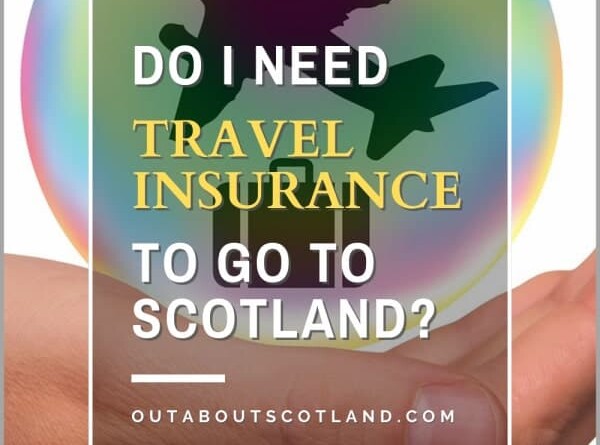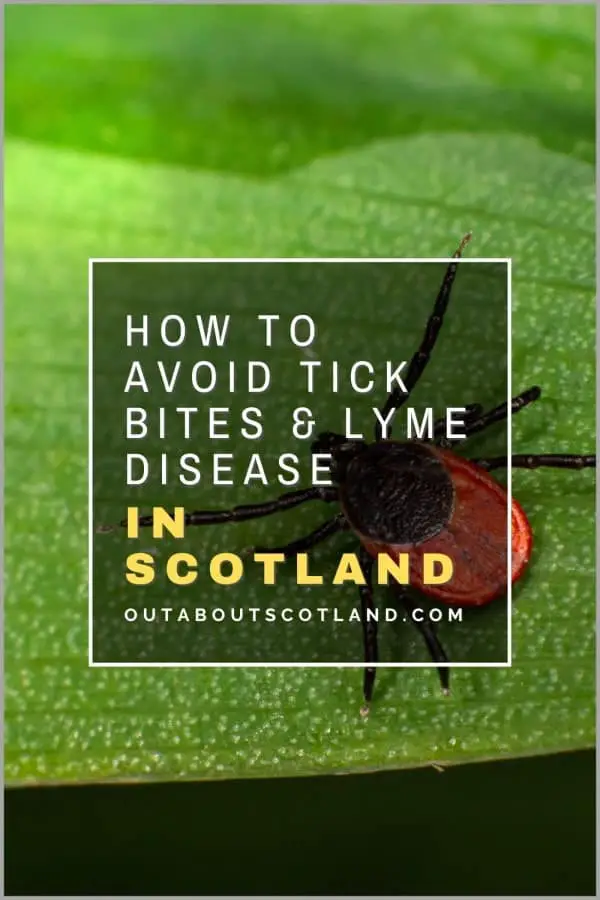Travel insurance is something that all travellers need but often forget about or decide not to get due to the cost. However, this is one insurance policy that’s an absolute must-buy, especially in the UK, where each year over half a million individuals and families find themselves having to make a claim while on holiday.
Discover everything you need to know about travel insurance for Scotland in this ultimate guide which covers the best travel insurance types, add-ons, and exclusions.
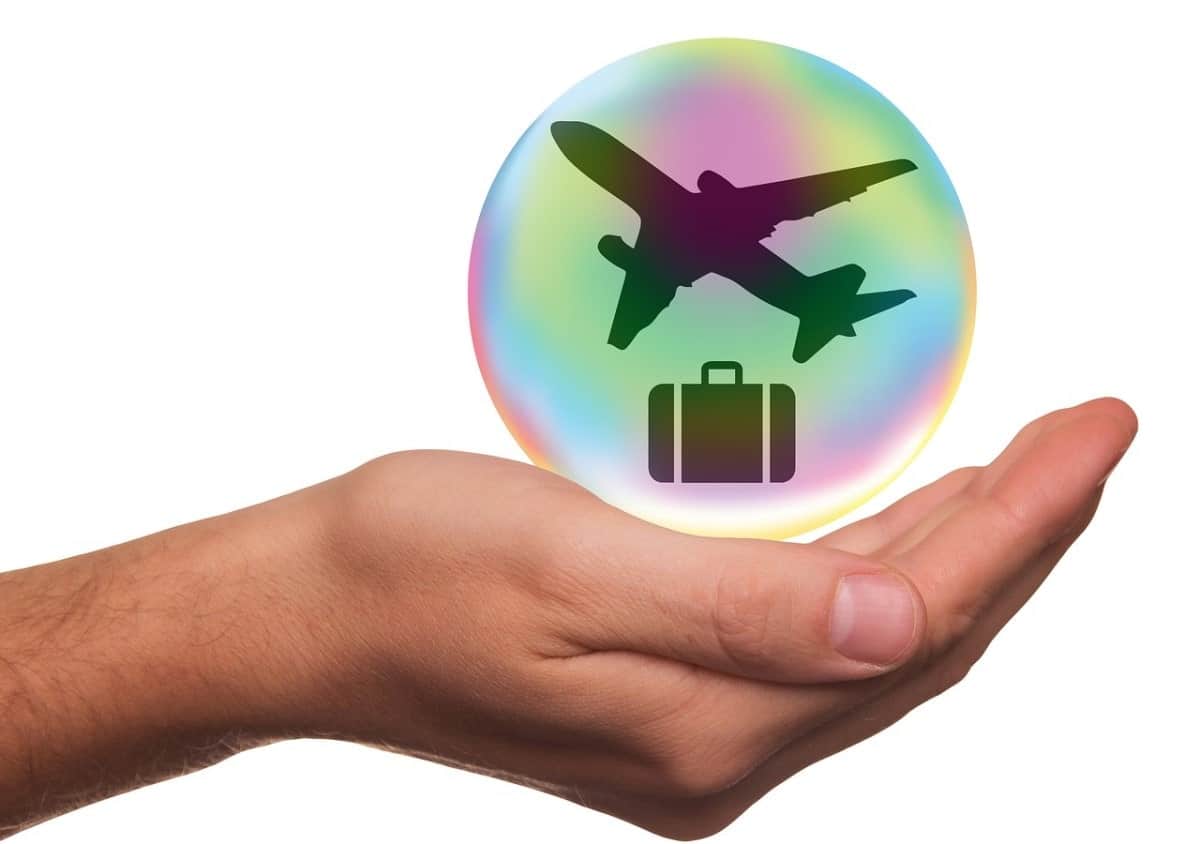
What Is Travel Insurance?
No matter where you’re heading, getting the right travel insurance is one of the most important things you can do to protect yourself, your family, and your possessions. Travel insurance is a temporary insurance policy that’s designed to compensate you if you experience problems while travelling either overseas or within the UK on holiday. Like other insurance policies, it provides a safety net against all those expenses that can mount up should the worst happen.
It’s something that’s an absolute must if you’re visiting Scotland as an international traveller or you’re planning to take part in any activity where there’s a chance you could become injured or incur damage to your equipment.
If you live in the UK and you’re visiting Scotland for a weekend with nothing planned other than wandering around a few museums, you’re probably not going to bother arranging a travel insurance policy, and that’s fair enough. But what if you’re spending a week skiing in the Highlands, or you intend to climb one of Scotland’s Munro’s on a solo expedition?

Many travel insurance policies include cover for damage to gear as well as personal injury, so if you have a tumble while skiing, for example, you won’t be too out of pocket if you damage those expensive skis, something that’s worth bearing in mind with a decent set costing £500+.
Travel insurance can also come to your aid if your flights or hotel bookings are cancelled without notice. Just look at the thousands of holidaymakers who lost the cost of their holidays when the COVID-19 pandemic hit.
This last point is worth bearing in mind if you’re a domestic traveller to Scotland and you think you don’t need insurance. Yes, Scotland is an inherently safe country, but there’s still a chance of getting pickpocketed, and I bet that mobile phone in your pocket didn’t come cheap.
Travel insurance tends to be the last thing that comes to mind when booking a holiday, but it will be the first thing you’ll wish you had if you face any dilemmas during your trip.
Buy travel insurance from TravelSupermarket
Travel Insurance for UK Holidays
Even if you’re living in the UK and you’re booking a staycation in Scotland it’s still advisable to get a travel insurance policy. As I already mentioned, you might not need to foot expensive medical bills in this country thanks to the superb NHS, but you will still have to dig deep in your pockets for lots of other mishaps.
Even before the days of COVID, it wasn’t uncommon for UK holidays to be cancelled at a moment’s notice for multiple reasons. For instance, you could find the hotel goes out of business, leaving you high and dry with nowhere to spend the night and no way to get your money back (luckily you paid extra for legal expenses cover, didn’t you?).

Or maybe you’ve had news of a serious illness in the family meaning you have to cancel the entire holiday. Without travel insurance, it’s very unlikely you’ll get any money back.
If you’re hiring a car, you will be required to take out a separate policy, but this can often be added toour travel insurance as an It might not seem worth paying for, but many hire car companies are pretty unscrupulous when it comes to car insurance and will offer you very basic insurance at extortionate prices.
Having a little extra insurance with a separate policy could enable you to claim back the cost of repairing your possessions in the case of an accident. It might also offer some protection with hire car insurance that has an optional collision damage waiver (CDW).
A CDW is an agreement in which the rental company agrees to cover the cost of any damage the driver causes to the vehicle. Unfortunately, it often comes at an eye-watering price and usually isn’t worth the paper it’s written on, thanks to these companies having get-out clauses that exclude the most likely to get damaged parts of the car, such as the tyres, wheels, wing mirrors, windows, hubcaps, and undercarriage.
My advice here is to read and re-read the CDW before signing as it’s often pushed on travellers with a rather heavy hand.
Other than hotels and hire cars you will also need insurance for expensive equipment (I already mentioned ski gear so I won’t repeat the point) as well as cash. With regard to cash, make sure your travel insurance policy specifically states cash is covered, especially as most holidaymakers like to fill their wallets to the brim in order to visit all those exciting Scottish tourist attractions, making them attractive targets for pickpockets.
As a top tip, one thing to check before getting your travel insurance is whether you have home contents insurance. You may find that your personal possessions are insured while you’re away from home for up to 30 days, but check with your insurer first for clarification.
Choosing Travel Insurance for Scotland
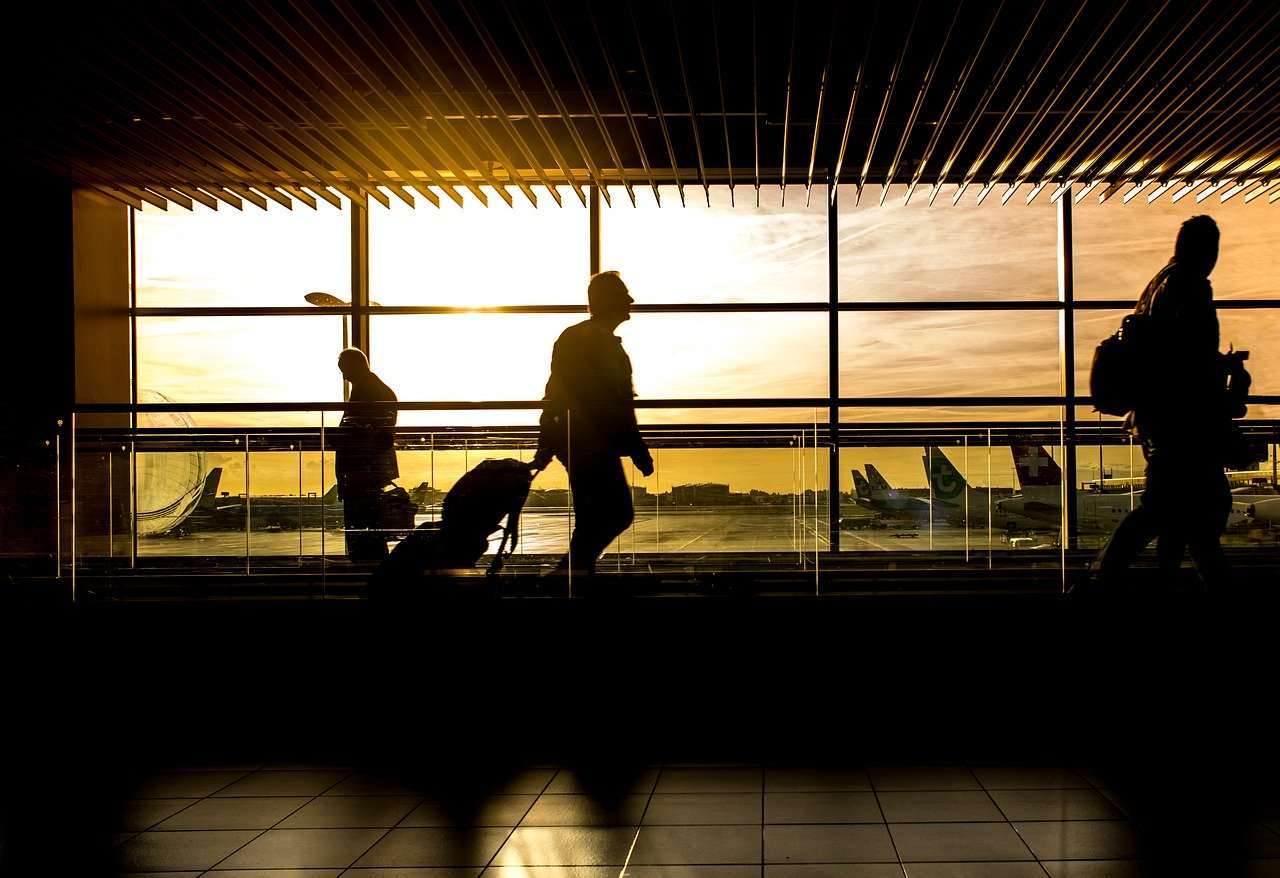
While online search comparison sites have honed their efficiency to near-perfection, there are a few things to be aware of before hitting that ‘Buy’ button. Although you can filter the results by many criteria, the default is almost always to show you the cheapest option first, and travel insurance is definitely something where the cheapest isn’t always the best.
Those cheap policies are unlikely to cover all your requirements so before performing a search write down a list of everything you might need to cover and make sure the policy includes it in the small print.
Will you be taking lots of expensive equipment with you? Will getting repatriated to your home country be unusually expensive? Do you have preexisting medical conditions that could hinder repatriation? Are you travelling for a length of time that isn’t covered by a standard policy?
These and other factors may have to be included in your travel insurance quote and unfortunately, the cheapest quotes usually require you to pay a hefty surcharge to add them. Something else to consider is how many trips you’re planning to take in one year. As someone who loves travelling, I learned some time ago that it’s more cost-effective to arrange an annual multi-trip policy than lots of separate single-trip policies.
By supplying an online insurer with my personal details, my travel plans, and my travel habits, they can get to work scouring the web for cover that is specifically designed for frequent travellers – usually defined as three or more trips per year.
It also saves the hassle of arranging individual policies every single time I depart, leaving me free to concentrate on just enjoying each trip over the 12 months the policy is valid.
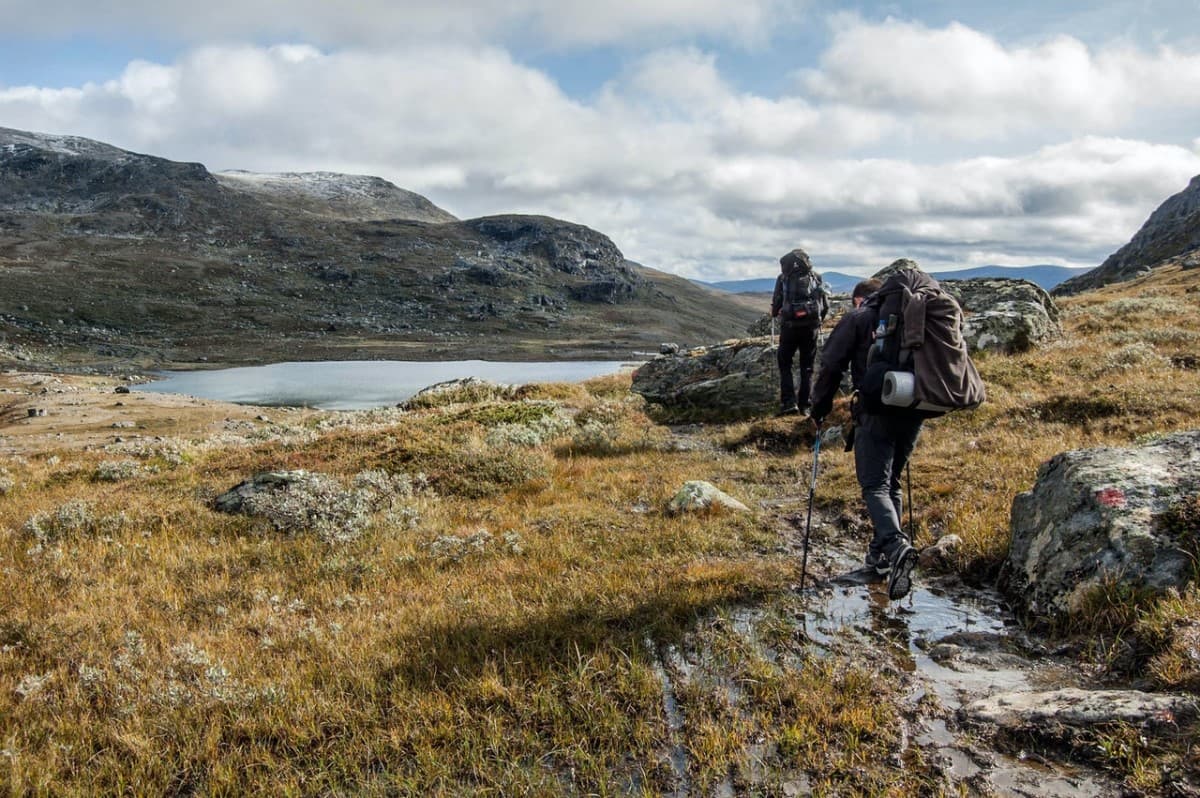
Something to be aware of with all travel insurance quotes is that there are restrictions on the number of days the policy is valid. That won’t be much of a concern for people on a one or two-week holiday, but anyone travelling for more than two weeks (e.g. backpackers) must ensure their travel insurance policy doesn’t have a duration that’s shorter than the time they’ll be away.
Finally, when choosing your insurance I suggest making sure it covers you for the activities you’ll be undertaking as well as the equipment you’ll be carrying. For trips to Scotland, this comes into play if you love skiing because with so many mountain ranges on offer, this country is very popular with Brits who love hurtling down the slopes but don’t want to spend a fortune on an overseas winter break.
If skiing is on the top of your agenda you might consider specialist travel and medical insurance that’s specifically geared towards winter sports activities. Several companies offer this service and a quick search for ‘UK skiing insurance’ on Google will give you many options.
My recommendation—and the website that I exclusively use after trying all the big ones in the UK—is Travel Supermarket. I find their site easy to use, and they always have the best prices. Check them out at the Travel Supermarket website (affiliate link).
Different Types of Travel Insurance

Purchasing travel insurance for Scotland isn’t quite as simple as choosing the first quote that appears on your screen, as several variations cater to different circumstances. The most popular types of travel insurance are shown below.
Single-trip cover. As it says on the tin, these policies will ensure you and your family for one single trip within the limits of the insurer’s T&C. Single-trip cover usually includes cancellation of flights and hotels, emergency medical expenses and repatriation to your home country, missed flights, and lost or damaged baggage.
It’s almost always possible to extend the coverage of these policies to include theft of personal possessions, gadget cover (such as expensive mobile phones, tablets, and laptops), and disruption to airspace – as happened recently in the UK thanks to unlicensed drone operators flying too close to a major airport.
Multi-trip cover. A multi-trip policy is basically the same as a single-trip policy, but it covers you for more than one holiday per year. The limitations are generally the same between both policies, but multi-trip cover also takes into account the need for extended durations (backpacking students on gap years, for example).
For those people who are returning to the same destination multiple times over, these policies usually include ‘end supplier failure cover’. An example of where this would be useful is pre-booking several return visits to the same hotel, but the hotel goes out of business midway through the year.

Golf cover. Scotland is the birthplace of golf and there are over 550 courses to choose from, meaning there are more courses per head of population than any other country in the world.
The attraction of Scotland’s courses means tens of thousands of golfers visit the country each year so it’s important to arrange specialist golf travel insurance. This will almost certainly include personal liability insurance in case one of your golf balls hits someone, and enhanced medical cover in case the same happens to you.
In addition, a golf insurance policy will pay for lost, stolen or damaged clubs and will usually – but not always – include cover for golf bags and trolleys.
Backpacker cover. The number of backpackers visiting Scotland seems to increase each year, thanks in part to the gob-smacking scenery in the Scottish Highlands and world-leading touring routes like the North Coast 500 that attract adventurers from far and wide.
While backpacking is very safe in the UK it’s still possible for plans to go awry, especially if part of your trip includes camping in the great outdoors.
It’s widely accepted that backpacking cover is a necessity as many backpackers are also likely to take part in dangerous activities like kayaking, mountain climbing and snow sports. If that sounds like you, consider a specific solo backpacking travel insurance policy instead of a generic one that caters to families.
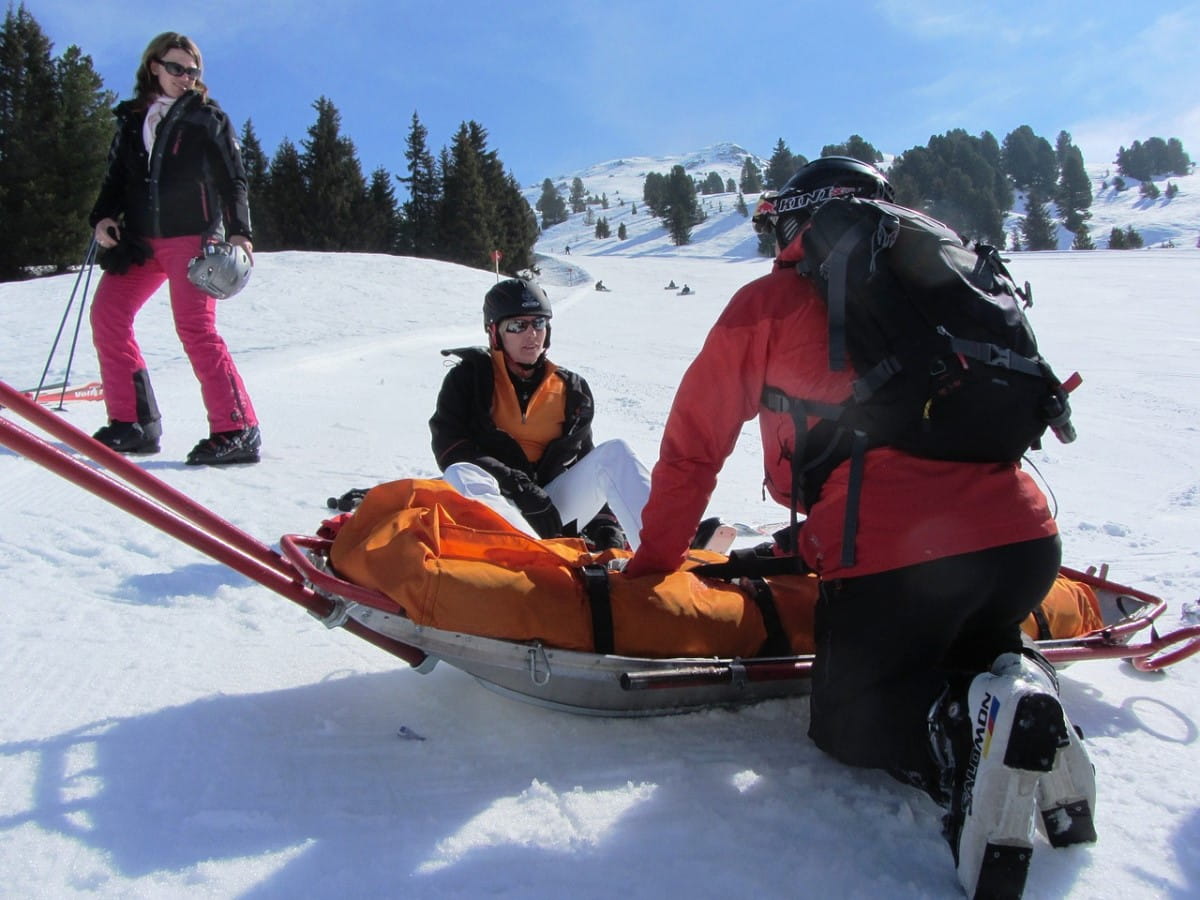
Winter sports cover. Not everyone comes to Scotland to stroll around Edinburgh and Glasgow, and you’ll find just as many winter visitors at the five main ski resorts in the Scottish Highlands as you will in the cities.
Due to the number of injuries associated with winter sports, you will almost certainly have to pay for additional cover if you intend to hit the white stuff as the majority of policies do not include snowbound activities, so if you have an accident while skiing and only have basic cover you may find your policy is invalid.
An additional feature of winter sports insurance is piste closure cover. This will allow you to reclaim some of the cost of your holiday if you pre-pay for a ski package but find there’s not enough snow to ski on during your stay.
Buy travel insurance from TravelSupermarket
Policy Extras
There are a multitude of extras you can add to most policies, some of which will be useful to you and others that may be suggested but will be of no use whatsoever. It’s impossible to create a blanket travel insurance policy that will cover every person for every eventuality but the following additions will prove useful to most people.
Legal expenses cover: This will help to pay for legal costs should you need to get a solicitor involved if you suffer an injury or damage to your possessions. You might not think you’ll ever need it, but I now include it in every travel insurance policy I take out.
Why? I hired a motorcycle a couple of years ago for a road trip through the Highlands, but at a junction, a careless driver hit me and knocked me off. The hire shop’s insurance covered the cost of repairs to the bike, but not for my expensive jacket or my backpack, which had a new camera in it.
Thankfully, I’d added legal expenses cover to my travel insurance for the trip and the insurer took care of pursuing the claim for me. It took a few months to sort out but I eventually received 90% of what I’d originally paid for my ruined gear. If I hadn’t taken out legal expenses cover I’d have lost the lot.
Lost luggage: Ever travelled overseas only to find yourself standing in the lost luggage queue, fuming that the airline has somehow lost your bags? Yep, me too, which is why this extra is another expense I don’t mind paying for when travelling.
Note that some credit cards include this as a freebie so make sure you check your card’s rewards scheme before adding it to your cover (although it’s usually only a few pounds anyway).

Personal liability: This is something I’ve never felt I needed, but I imagine it would be very useful for some people. It covers any costs involved with damages against you if you cause injury to another person, or inadvertently damage another person’s possessions while on holiday.
Imagine you’re skiing and knock into someone and break their arm, or drive on the opposite side of the road in a new country and knock someone over, causing the other party to sue you for damages. In circumstances like those you’ll be glad of the peace of mind personal liability cover gives you.
Adjustable excess: Insurance excess is a bit of a double-edged sword. By agreeing to a minimum amount you will pay before receiving a payout you can drastically reduce the cost of your insurance policy. The downside of course is that this amount can seriously eat into your compensation.
What most insurers allow you to do is agree to a lower excess in return for paying a higher fee upfront. I always play with the figures on the insurer’s website before settling on a quote, as oftentimes the cost of reducing the excess by a hundred pounds or more only incurs an additional fee of a couple of quid.
Policy limit extension: If you’re the type of person who travels often, I bet you’re familiar with this frustrating scenario: After a long flight, you finally reach your destination only to learn that your luggage didn’t and you’re stuck with no clothes or toiletries.
You now have to rush to the nearest store and spend money you didn’t budget for to replace everything you lost, leaving you short-changed for the rest of the holiday.
For this reason, it’s always in your best interest to request an expansion of your policy limits to include lost, stolen, or damaged luggage, clothes, and cash. If you have to travel with high-end equipment like cameras, then it’s in your best interest to include additional cover for gadgets as well.
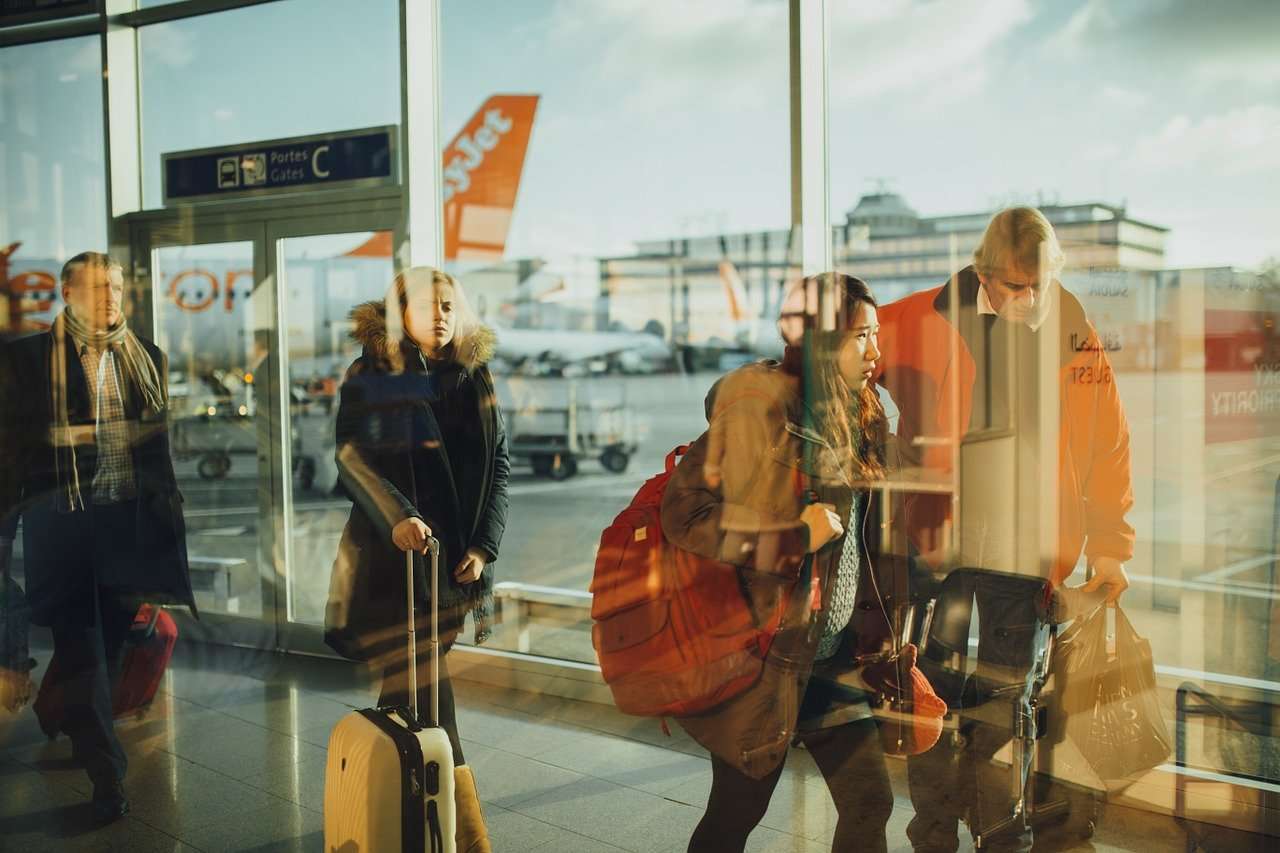
Trip interruption insurance: This add-on protects you in case you arrive with all of your luggage intact, but you then suddenly have to go back home due to a family emergency or something equally important. With trip interruption insurance added to your policy, you will be reimbursed, so you can resume your trip once the matter is resolved.
Buy travel insurance from TravelSupermarket
What Is Excluded From Travel Insurance?
The days of insurers getting out of paying claims due to overly complicated terms and conditions are (mostly) long gone, and nowadays UK insurers provide T&Cs that you don’t need a law degree to understand. That being said, it’s still your responsibility to read through the small print and understand exactly what you are and aren’t meant for.
Exclusions vary by company, but generally, the largest insurers have a reputation to uphold, so they’re less likely to try anything underhand, especially when they know how easy it is for a disgruntled customer to leave a negative review on Trustpilot.
Some of the most common travel insurance exclusions are:
Natural catastrophe: This is a bugbear for most travellers and it’s frankly unbelievable that in this day and age, insurers can get out of paying a claim because of an ‘act of god’.
Basically, for any event that is deemed a natural disaster, the insurer will refuse to pay anything towards your costs, whether that’s emergency flights back home, medical costs or loss of possessions. This doesn’t apply so much in the UK because other than flash floods we rarely suffer from natural events that can disrupt holidaymakers’ plans.
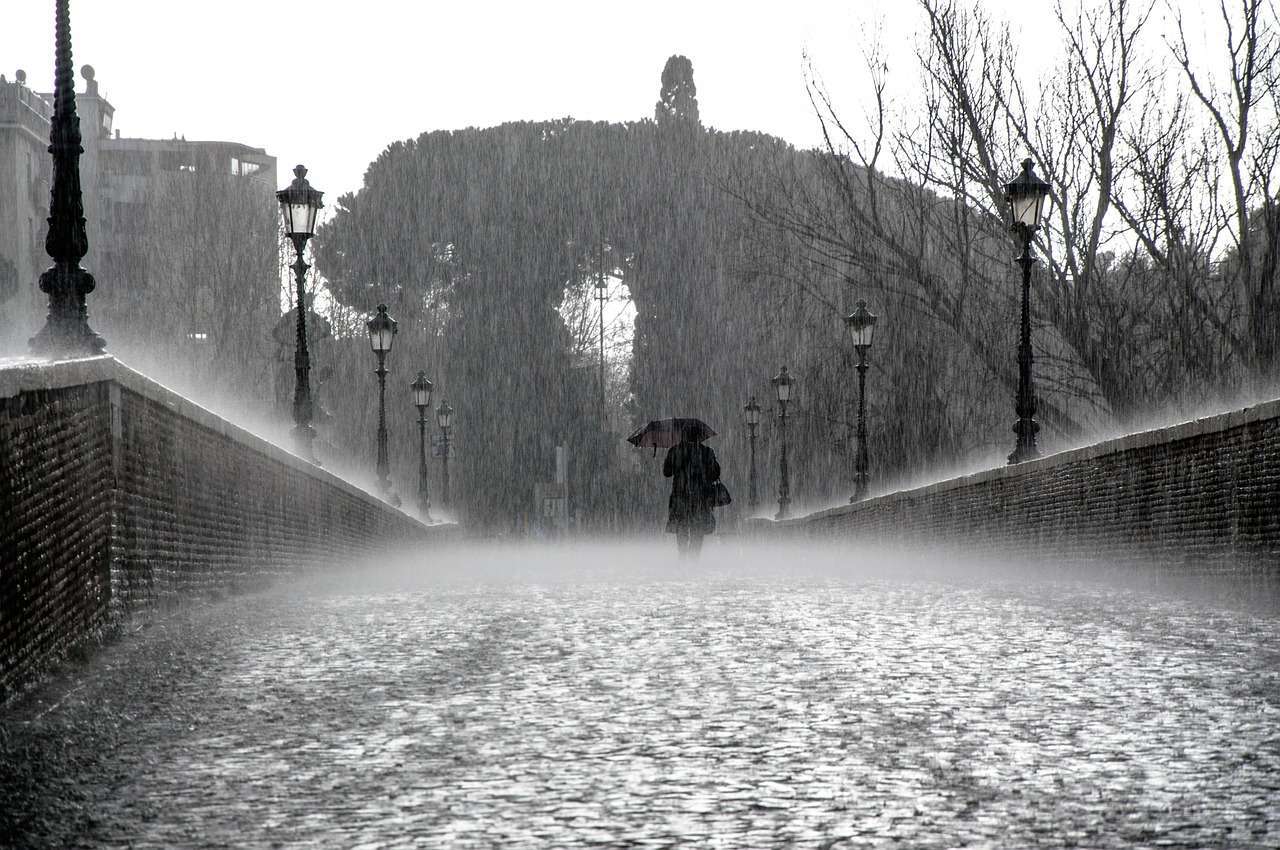
However, travel to other parts of the world and you could find yourself caught up in earthquakes, tsunamis, tornadoes – you name it – and all without an insurance policy to fall back on. Most insurers will allow you to add natural catastrophe and terrorism cover to your policy, but of course, you will have to pay an additional fee to include it.
Terrorist acts: It’s a sad sign of the times that we all have to be ever mindful of the threat of terrorism, and the UK is no exception. Although rare it does happen, and if you’re caught up in an incident it’s unlikely your travel insurance will pay out because of it. Thankfully, here in Scotland terrorist attacks are almost unheard of, although they have occurred in the past (Glasgow Airport in 2007 for instance).
Drugs and alcohol: This is something that’s completely on the shoulders of the individual, but I bet hardly anyone gives it a second thought. If you damage your own or someone else’s property or cause injury to yourself or someone else while drunk or on drugs, your travel insurance becomes null and void. The majority of people won’t need to give this exclusion a second thought, but if you like living on the wild side, it’s worth bearing in mind.
Undeclared medical conditions: When you fill in the initial questionnaire for your travel insurance policy there will be a long list of medical conditions that you must declare. These often apply even if you’re waiting for test results or have a seemingly unrelated condition, so it’s in your interest to make sure you check every box truthfully, and that includes leaving as much information as possible in the ‘additional information’ box at the end.
Other exclusions include:
- Travelling to receive medical treatment. If you travel to another country to take advantage of their health service and you don’t declare it on your insurance policy, your policy will not cover you if anything goes wrong.
- Leaving belongings unattended. This mainly applies to airports, but if you leave bags unattended and they’re deemed a threat, you will be liable for all associated costs, which could include damages for businesses being forced to temporarily close.
- Participating in high-risk activities such as extreme sports will invalidate your travel insurance policy if you do not declare your intentions when you take out the cover.
- Travelling against government advice. If there is government advice not to travel to certain countries due to political unrest or natural disasters, it is unlikely standard travel insurance policies will cover you. However, it’s still possible to purchase travel insurance, though the premiums will be substantially increased from the norm.
- Using a hire car, van, or motorcycle without the required category on your licence, e.g., driving a manual gear hire car if you only passed your test for automatic cars (the reverse does not apply).
Travel Insurance & Atol Protection
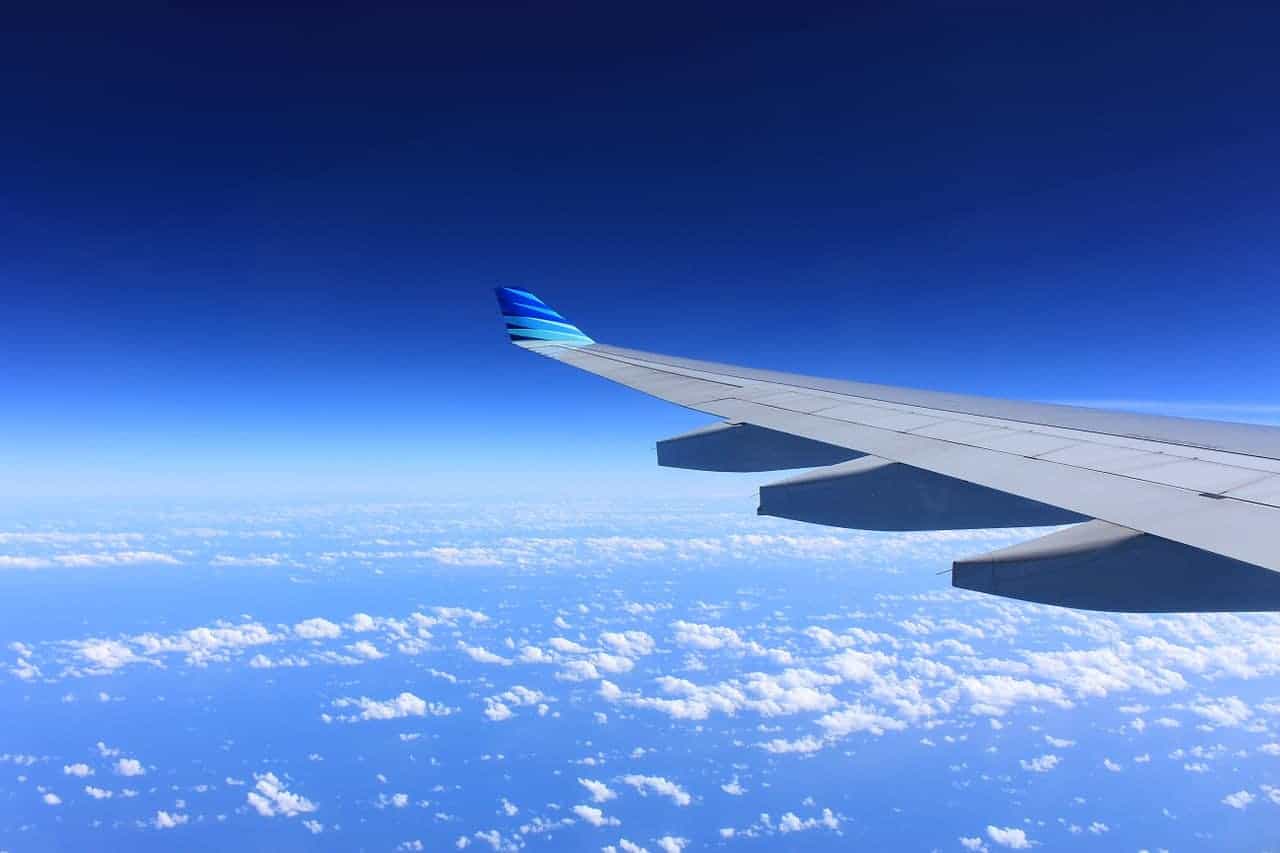
You may have heard of ATOL protection, but if not it’s a scheme that’s managed by the Civil Aviation Authority that protects travellers from losing money on flights. Any travel provider that meets ATOL standards will automatically arrange for you to finish your holiday and fly back home even if the airline goes out of business.
Note that not all travel providers are ATOL-protected, so if you see a similar holiday with two travel agencies, one of which is protected and the other isn’t, you should consider the protected agency above the other. This isn’t so much of an issue for Brits holidaying in Scotland, but it’s certainly worth investigating if you travel abroad.
So does this free service mean you don’t need travel insurance? The answer is no, as although ATOL protection will ensure you’re able to return home without additional expenses, it won’t help you with all the other issues that can arise such as delayed flights, lost luggage or personal injury. It is nice to have, though, and it’s another safety net to add to your arsenal should things go wrong.
Be aware there are a couple of points to note about ATOL protection that can invalidate your participation in the scheme, the first of which is purchasing your holiday from a travel provider that is not ATOL-accredited.
You will also not be protected if you arrange your flights and hotel with different travel agencies, nor will you be protected if you use one agency but book your flights and hotel separately. In short, your holiday must be booked with an ATOL-accredited travel agency as a complete package to participate in the scheme.
Buy travel insurance from TravelSupermarket
Credit Cards & Travel Insurance

The Consumer Credit Act of 1974’s Section 75 applies to all credit card transactions in the UK. This act makes credit card providers jointly liable for any breach of contract by the retailer, allowing you to put in a claim for a cancelled holiday with the credit card provider.
This is great news for consumers as this level of protection costs nothing, plus most credit cards allow you to build up points on your purchases meaning you can save money on your next holiday when you pay by card. With regard to travel insurance, you cannot claim for missed flights or cancelled hotels from both your credit card issuer and your travel insurer, as only one is allowed to pursue the recovery of your losses.
Limitations of Section 75 include the cost of your purchase which must be over £100 but less than £30,000, and you cannot include multiple items if they are all under £100, so two flights at £90 each would not be covered.
One thing to keep in mind is that Section 75 only applies to credit cards, not debit cards, and that includes debit cards backed by credit companies like Visa or Mastercard. However, if you book your holiday on a debit card and the hotel or flight operator goes bust you can apply for a chargeback whereby the transaction is reversed.
Note that unlike Section 75, chargebacks are not part of UK law and instead only apply if the bank that issues the debit card is subscribed to the chargeback scheme. There’s also a 120-day claim limit with debit card chargebacks and you have to provide evidence that there has been a breach of contract.
Health Insurance Cards
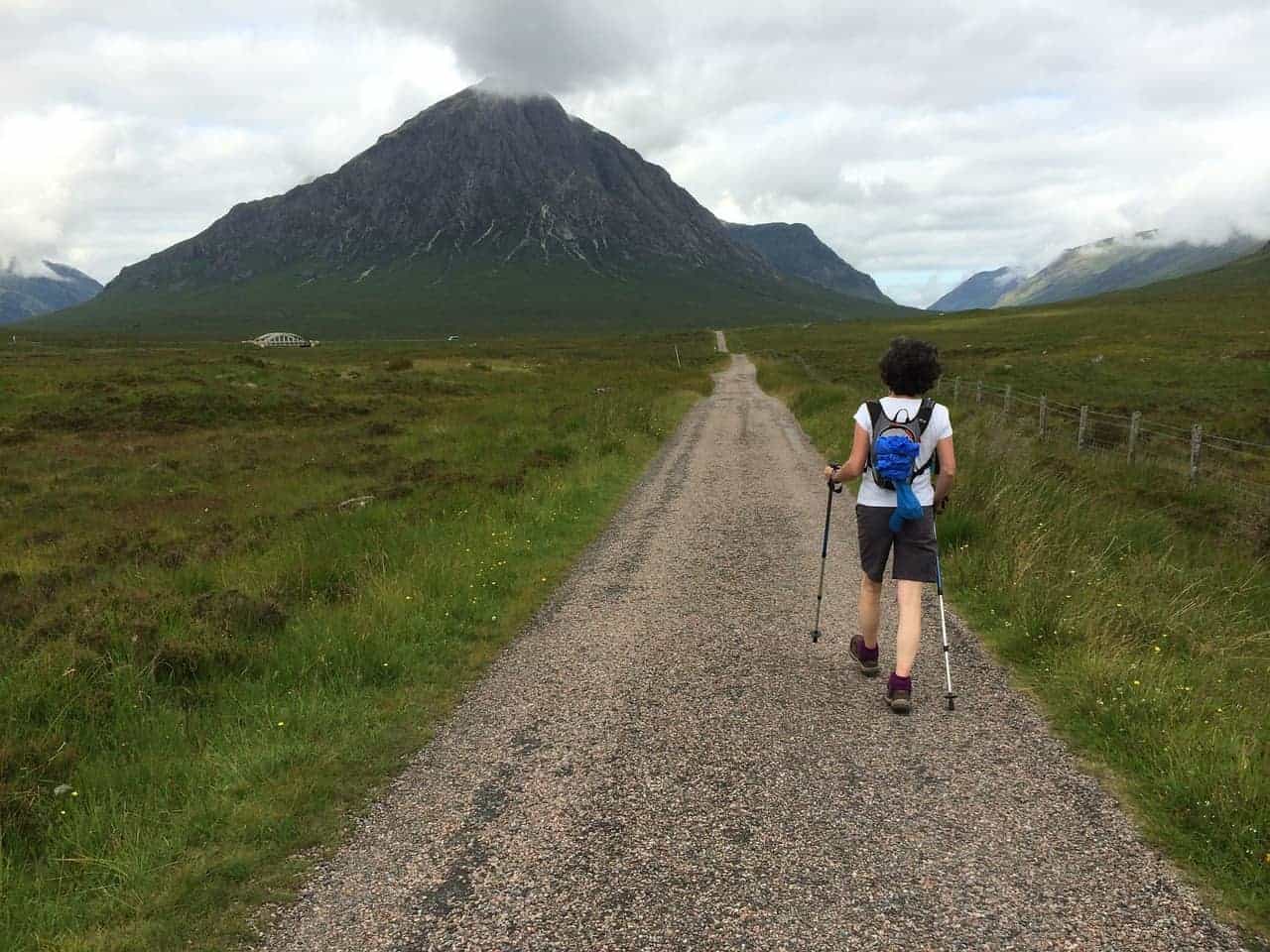
You may be aware of the European Health Insurance Card (EHIC), which allows EU citizens to receive free or reduced-cost medical treatment while travelling in EU and EEA countries. This is a free health program that is available to everyone in Europe, but the Global Health Insurance Card is taking its place as of 2021 due to the UK’s decision to leave.
The GHIC covers UK citizens travelling to Europe while the EHIC covers Europeans travelling to the UK. Both schemes provide emergency medical treatment at no cost if you become unwell while travelling and you will not have to pay anything at all for the care you receive.
There are a couple of caveats, though. First, if you’re travelling to another country specifically for medical treatment, the EHIC and GHIC are invalid. Second, not all European countries have a healthcare system that offers free treatment up front, and you may be required to contribute towards the costs. In this instance, you will then have to pursue a claim for a refund of the costs when you get home.
Third, some countries do not accept the GHIC or EHIC, and you will therefore have to rely on your own travel insurance to cover any medical bills you incur. Currently, as of 2022, these countries are:
- The Channel Islands
- The Isle of Man
- Monaco
- San Marino
- The Vatican
For further information, take a look at the EHIC page on the European Commission website or the GHIC page on the gov.uk website.
Pre-existing Medical Conditions
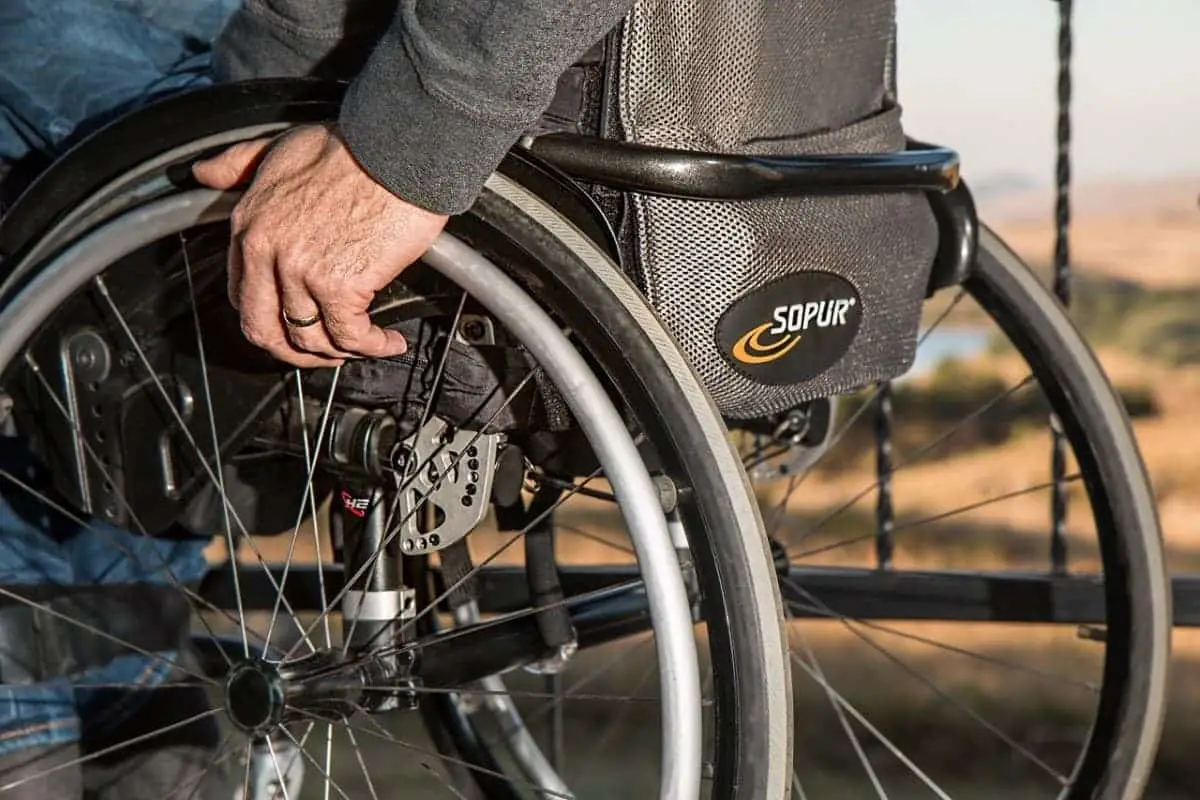
It’s still possible to get travel insurance if you have an existing medical condition, but as with all insurance policies, there will be additional exclusions and an increase in the premium. Many insurers will not accept applicants who have serious medical conditions such as cancer on their standard policies, but thankfully there are specialised plans that take into account illness and injuries.
In order to obtain insurance with a pre-existing medical condition, applicants will be asked to complete an online questionnaire that is more in-depth than is required for standard policies, and there is a strong possibility they will also have to complete an independent medical exam by a doctor.
Applicants will also be asked how severe their symptoms are, what medications they take, and how often the symptoms are experienced.
Although the cost of the insurance can increase dramatically, applicants must answer all questions as truthfully as possible because if they find themselves requiring medical treatment overseas their policy will be voided if it is proven that incorrect answers were given during the application process.
Bear in mind that a plea of ignorance will not be accepted.
For those of us in the UK who benefit from free NHS healthcare, it could be devastating to have to pay medical bills that run into the tens of thousands of pounds while in another country. Long story short, check and double-check that all answers on medical questionnaires are correct.
Note that it’s not just the more serious medical conditions that affect travel insurance policies, and many insurers increase premiums for what are otherwise considered low-level afflictions, including:
- Diabetes
- High cholesterol
- Joint inflammation
- High blood pressure
- Asthma
If you’re in any doubt tell the insurer about every medical complaint you have and let them decide how it affects your insurance policy.
If you find the revised premium is too much there are ways you can lower it including increasing the voluntary excess and switching to a multi-trip plan which often has discounts. The best way to save money though, is to shop around at price comparison sites such as Travel Supermarket.
Making a Travel Insurance Claim

As long as you book with a large, reputable insurance company you’ll find it’s quite easy to make a claim, and unless it involves a serious injury there won’t be too many online forms to fill in. Most online insurance companies will email you a list of their Terms & Conditions after you make a purchase, along with a certificate of insurance, a summary, and details of what to do if you need to make a claim.
If you take anything away from this article, please, please remember to print off or save PDFs of these documents and take them with you. They are invaluable to the claim process as they’ll save you heaps of time when it comes to confirming exactly what is included in your cover.
As a bare minimum, I recommend writing down the insurance policy number along with the insurer’s customer support number. They should be able to dig your details out and transfer you to the correct department, although most insurers have separate claim numbers and some even have emergency hotlines if you really find yourself in trouble.
As soon as you have a problem, try to let the insurer know so they can give you further advice on what to do. They might, for instance, require you to register theft of your possessions at a local police station, but they can also give you details of preferred medical facilities if you’re travelling overseas.
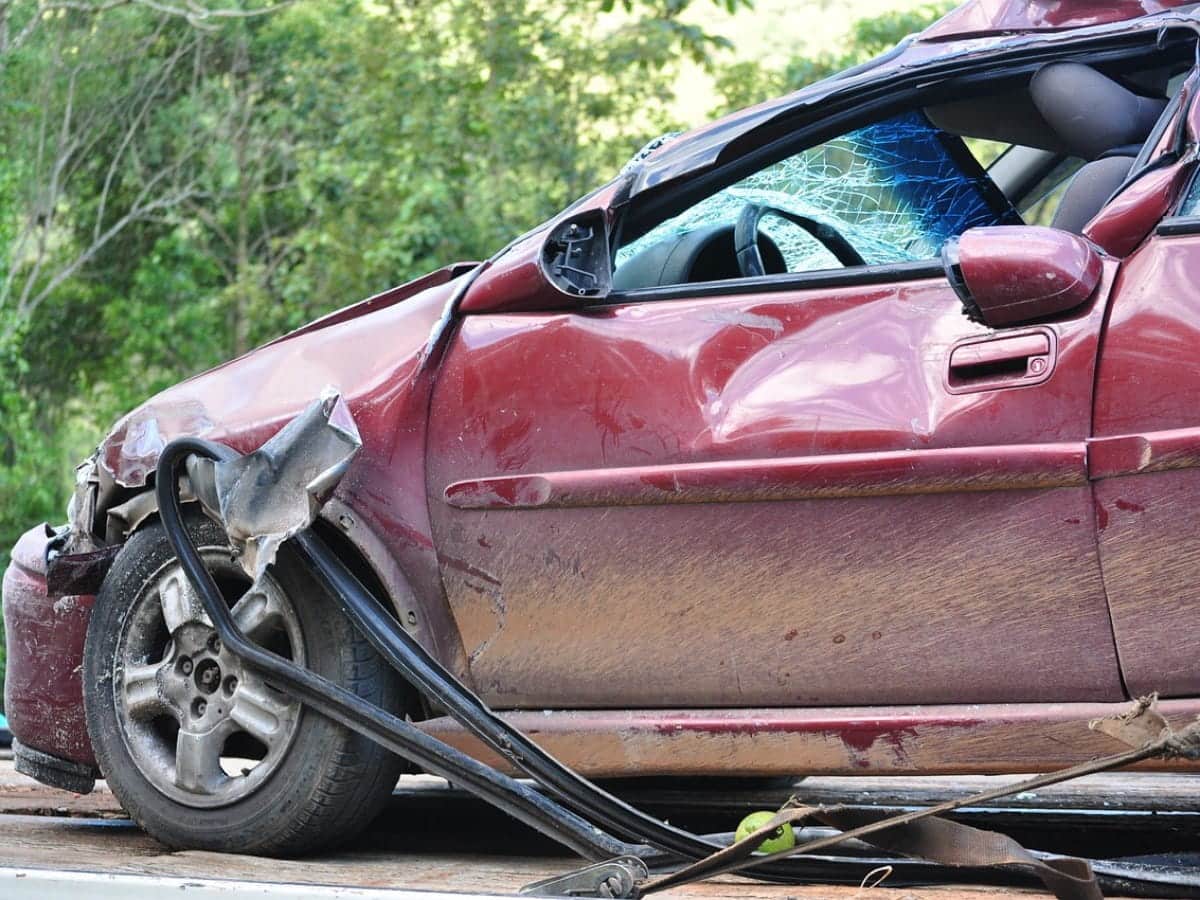
Although it’s possible to make non-urgent claims via an online form it’s more reassuring to discuss the situation with a real person. Simply give the agent your policy number along with details of the problem and let them do the rest.
To help the agents do their job as efficiently as possible, if you incur any expenses make sure you get a receipt for everything you pay for. That includes taxis to the hospital and upfront medical bills (if abroad). For the latter, you must keep all paperwork as the insurer will likely want copies sent to them in pursuit of your claim.
If your flight gets delayed you should request proof of the delay from your flight or tour operator at the airport, and the same goes for lost luggage.
You must be aware of exactly what you can claim for because insurers will only pay out if there is no other way to get your money back. If you need to rebook or cancel your holiday, check with the operator first, as they may be able to refund you or move your booking dates.
Buy travel insurance from TravelSupermarket
Resources
- Gov.uk: United Kingdom travel insurance advice.
- CDC.gov: United States travel insurance advice.
- CAA: Information about ATOL protection.
- Travel Supermarket: Recommended UK travel insurance comparison website.
- Compare The Market: UK travel insurance comparison website.
- Money.com: Recommended US travel insurance comparison website.
- Travel Insurance Directory: List of UK Insurance companies regulated by the Financial Conduct Authority (FCA).
This article is provided for informational purposes only and should not be construed as legal advice on any matter.
Frequently Asked Questions
Do you need travel insurance from the UK to Scotland?
Lots of people in the UK are taking staycation holidays where they choose to stay in places like Scotland rather than travel overseas.
While travel insurance is an optional extra it’s highly recommended to purchase a policy for holidays in Britain as the threat of flight cancellations, hotel closures, theft, and damage to gadgets and other equipment is as real as it is when travelling overseas.
What does travel insurance cover?
The type and level of travel insurance depend on the insurance company and the products they sell. As a minimum, you should expect most travel insurance policies to include cover for flight and hotel cancellations, lost or damaged baggage, theft of possessions, and costs incurred from personal accidents.
Additional cover can include cancellation of holidays due to natural catastrophes or terrorism, legal and liability protection, specialist sports cover, and enhanced travel disruption cover.
Does travel insurance cover my gadgets?
There is usually a set monetary limit for personal possessions with most travel insurance policies, and this rarely includes expensive equipment like mobile phones and laptops.
If you like to carry the latest gadgets with you it’s worth adding additional gadget cover to your policy. You will usually have to tell the insurer exactly which make and model of gadgets you will be taking with you as this can affect the cost of the policy.
Will my home insurance provide the same cover as travel insurance?
Home insurance frequently includes loss or damage of personal possessions while outside of your home, but this is not usually covered when travelling overseas.
Home insurance policies are unlikely to cover expensive equipment while away from home and rarely include loss of money, whereas they are likely to be included in a travel insurance policy.

